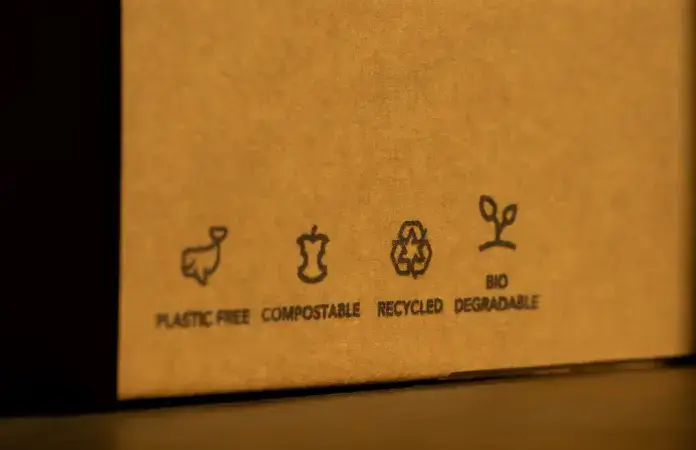8 Sustainable Ways to Enhance and Scale Your E-Commerce Business

In today’s digital era, e-commerce has become a key driver of economic growth, offering entrepreneurs an incredible opportunity to reach customers worldwide. However, as the online market grows increasingly competitive, it’s vital for e-commerce businesses to not only enhance their operations but also do so sustainably. By incorporating environmentally friendly practices into your business model, you can not only reduce your ecological impact but also strengthen your brand reputation and attract conscious consumers. In this blog post, we will explore eight sustainable ways to enhance and scale your e-commerce business, ensuring long-term success while prioritizing environmental responsibility.
Integrate Eco Software Solutions
Leverage eco software solutions that integrate seamlessly with your e-commerce platform to implement carbon-neutral checkout. These solutions calculate the carbon emissions associated with each purchase and offer customers the option to offset the emissions during the checkout process. By incorporating this feature, you empower your customers to make a positive environmental choice and actively participate in carbon neutrality. Ultimately, eco software solutions often provide transparent reports and certificates that can be shared with customers, reinforcing your commitment to sustainability. This level of transparency builds trust and demonstrates your dedication to making a tangible impact on the environment. When selecting the right software for your e-commerce business, consider platforms that offer accurate carbon emissions calculations based on industry-standard methodologies.
Embrace Eco-Friendly Packaging
The first impression is crucial in e-commerce, and your packaging plays a significant role. Transitioning to sustainable packaging materials is an impactful way to reduce your business’s environmental footprint. Consider opting for recycled cardboard or biodegradable options that maintain durability and protection while minimizing waste. Additionally, optimizing package sizes to match product dimensions can reduce unnecessary materials and excess space, leading to more efficient shipping and fewer emissions. Embracing eco-friendly fillers like shredded paper or compostable peanuts further enhances your commitment to sustainability. By aligning your packaging choices with eco-conscious values, you not only minimize waste but also demonstrate your dedication to the environment, positively impacting your brand reputation.
Streamline Supply Chain
Efficient supply chain management is a key factor in sustainable growth. By carefully evaluating your suppliers and logistics processes, you can make significant strides in reducing your carbon footprint. Consider sourcing materials and products from local suppliers whenever possible. This approach not only supports local economies but also reduces transportation emissions associated with long-distance shipping. Consolidating orders and optimizing delivery routes can further reduce the packaging waste and carbon emissions generated during shipping. By streamlining your supply chain, you not only enhance your operational efficiency but also contribute to a more sustainable and environmentally responsible e-commerce ecosystem.
Focus on Product Sustainability
One of the most impactful ways to promote sustainability in your e-commerce business is by offering a range of sustainable products. Evaluate your product offerings and identify opportunities to incorporate eco-friendly alternatives. This may include using organic or recycled materials, promoting fair trade practices, or supporting local artisans. Communicate the sustainability aspects of your products through engaging product descriptions and transparent labeling, educating consumers about the positive environmental impact of their purchase. By prioritizing sustainable products, you can attract and retain environmentally conscious consumers who value products that align with their values.
Implement Renewable Energy Solutions
Powering your e-commerce operations with renewable energy sources is an effective strategy to significantly reduce your carbon emissions. Investing in solar panels or wind turbines to generate clean energy for your warehouses and offices demonstrates a commitment to sustainability. Additionally, consider partnering with green energy providers to ensure that your online platform and data centers operate on renewable energy. Not only will this lower your ecological footprint, but it will also resonate positively with environmentally conscious customers who appreciate businesses that prioritize renewable energy. By integrating renewable energy solutions into your operations, you contribute to a cleaner future while enhancing your brand’s reputation.
Encourage Responsible Consumption
Promoting responsible consumption habits among your customers is a powerful way to foster sustainability. Emphasize the durability and longevity of your products, encouraging customers to make informed choices that prioritize quality over quantity. Educate your customers about the importance of product care, recycling, and upcycling, providing them with practical tips and resources. By nurturing a culture of responsible consumption, you can build customer loyalty while contributing to a more sustainable future. Engage with your audience through blog posts, social media content, and newsletters to share insights and inspire conscious consumption practices.
Cultivate Partnerships with Like-Minded Brands
Collaborating with other sustainable brands can amplify your impact and broaden your customer base. Identify brands that share your values and explore opportunities for joint marketing campaigns, co-branded products, or cross-promotions. By joining forces, you can leverage each other’s strengths, increase brand visibility, and inspire a wider audience to embrace sustainable choices. Consider partnering with organizations or initiatives focused on environmental causes, such as conservation or reforestation projects. These collaborations not only enhance your sustainability efforts but also provide opportunities for meaningful social impact.
Measure and Communicate Your Impact
To build trust and credibility, it’s crucial to measure and communicate the environmental impact of your e-commerce business. Tracking key metrics such as carbon emissions, energy consumption, and waste generation enables you to identify areas for improvement and make informed decisions. Share your sustainability initiatives and achievements through social media platforms, blog posts, and your website. Transparently communicate your sustainability journey, highlighting milestones and challenges you have overcome. By providing regular updates and engaging with your customers, you empower them to make informed choices and feel good about supporting your business. Demonstrating accountability and transparency reinforces your commitment to sustainability and enhances your brand’s reputation as a responsible e-commerce entity.

In conclusion, adopting sustainable practices in your e-commerce business is not only an ethical choice but also a strategic one. By implementing the eight sustainable strategies discussed in this blog post, you can enhance and scale your business while minimizing your environmental impact.
Not only will these practices help reduce your carbon footprint, but they will also enhance your brand reputation and attract environmentally conscious consumers who seek to align their values with their purchasing decisions. By demonstrating your commitment to sustainability, you position your e-commerce business as a leader in the industry and contribute to a more sustainable future.
Remember, sustainability is an ongoing journey. Continuously evaluate and improve your practices, staying informed about emerging sustainable technologies and consumer preferences. By integrating sustainability into your core business values, you not only contribute to the well-being of the planet but also inspire others to make conscious choices. Start implementing these sustainable strategies today and pave the way for a thriving e-commerce business that prioritizes both profit and the planet.
